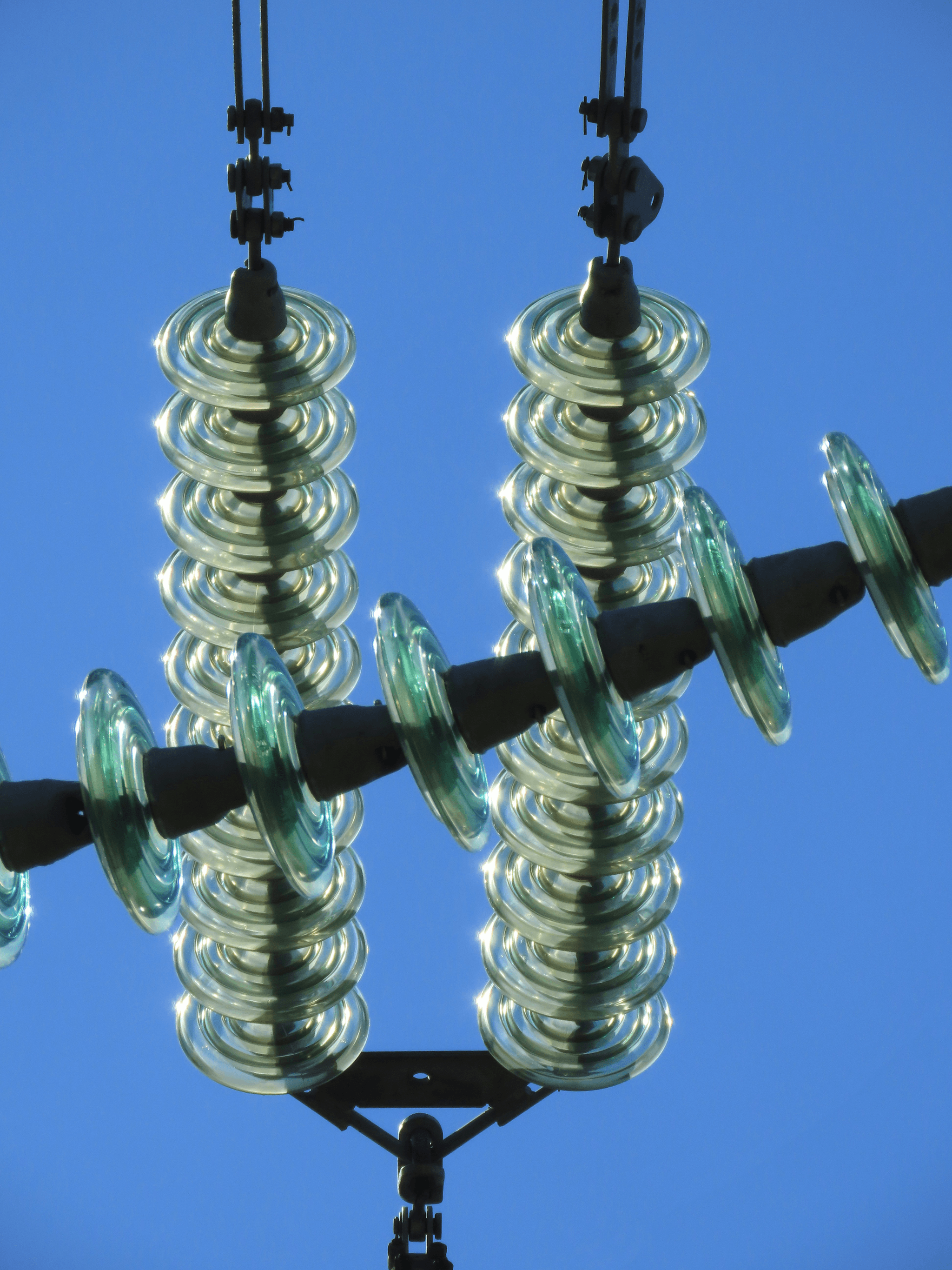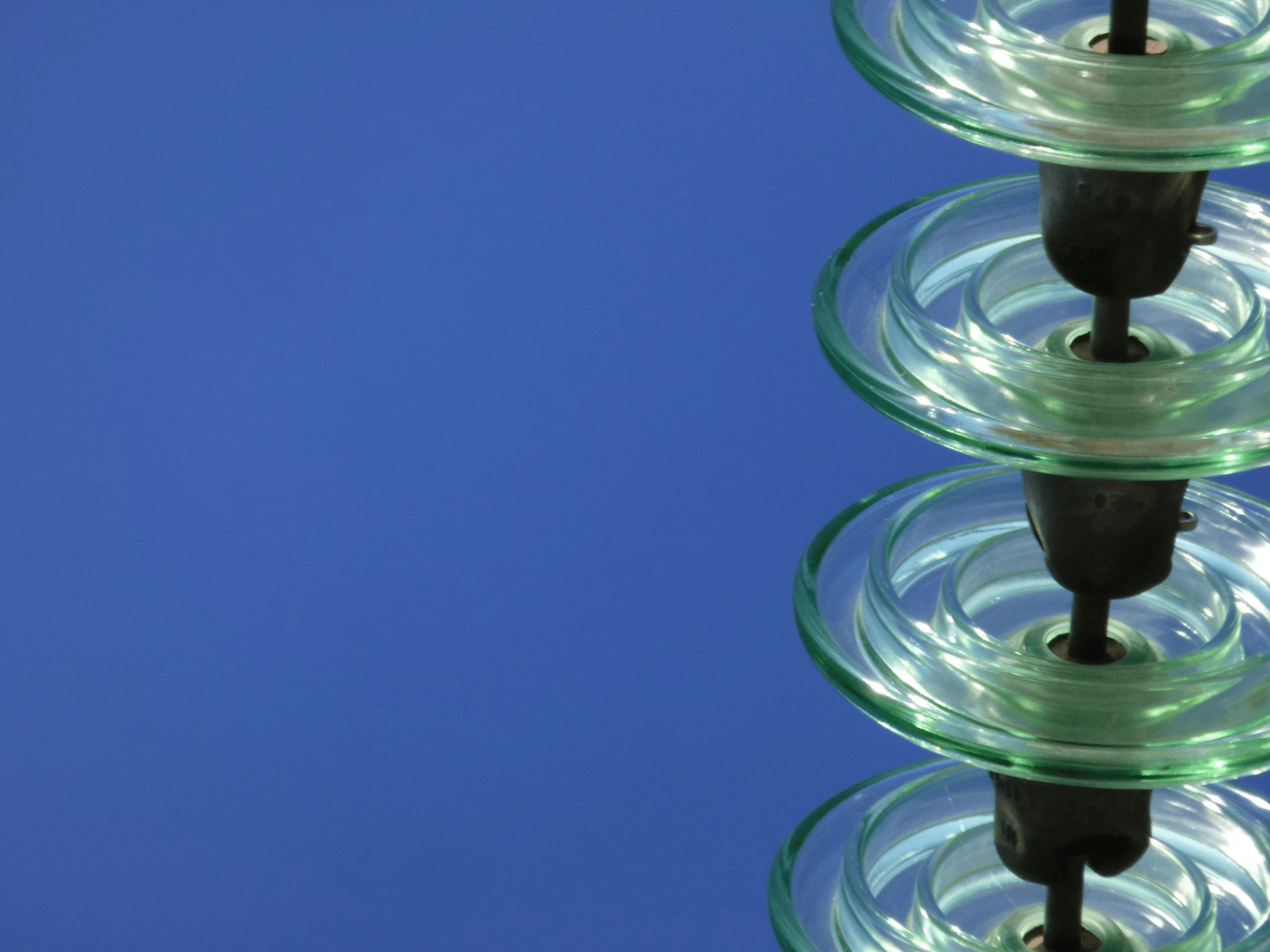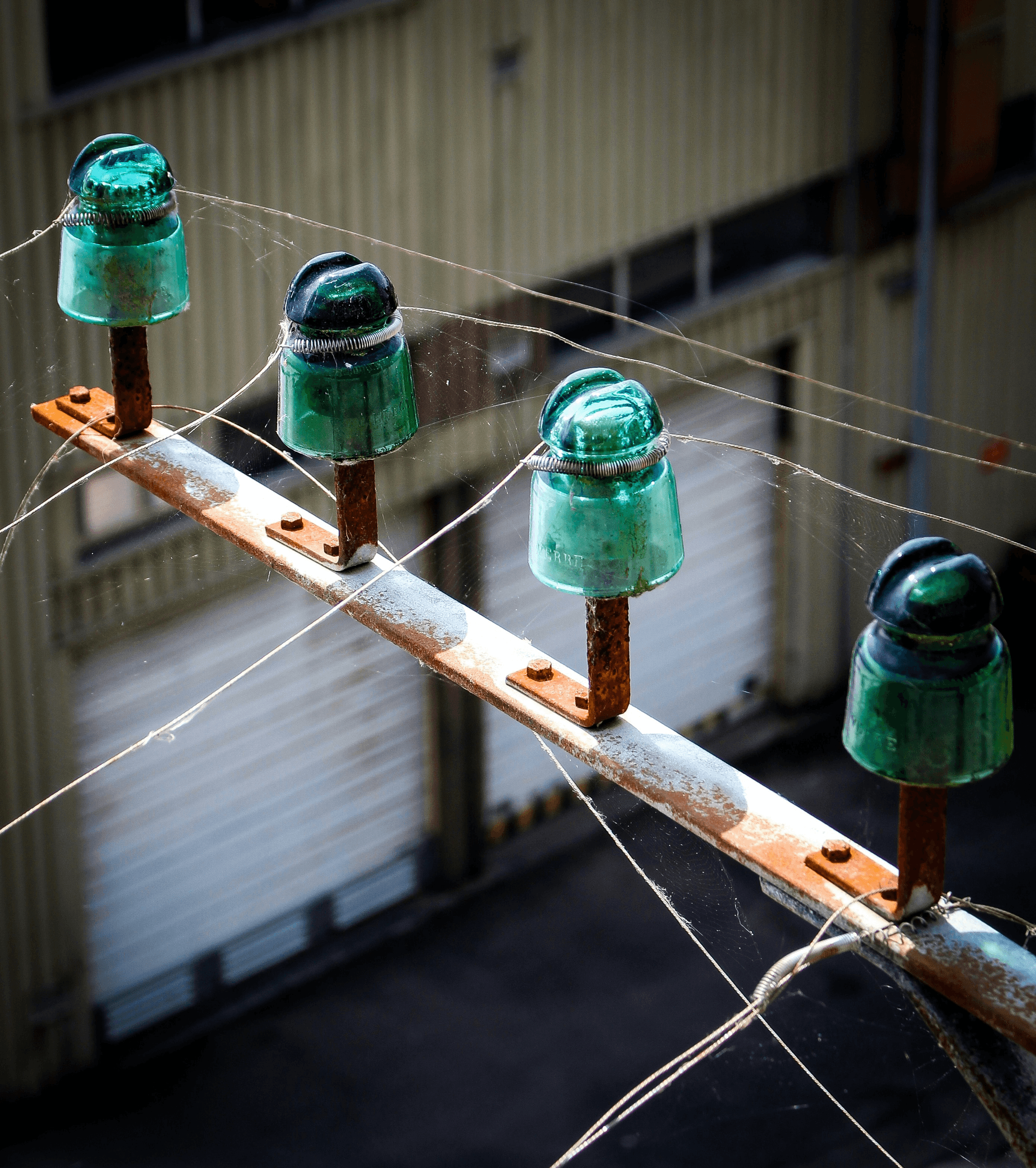Introduction
Insulators play a crucial role in the field of electrical engineering, acting as barriers that prevent unwanted flow of electricity. Understanding insulators is essential for designing efficient power systems, as they ensure safety and reliability in electricity distribution. This section will delve into the nature of insulators, particularly focusing on porcelain and glass, while addressing common questions like Is porcelain an insulator? and exploring the key differences in their composition and use.
Understanding Insulators in Electrical Engineering
At their core, insulators are materials that resist the flow of electric current, making them indispensable in electrical applications. The question Is porcelain an insulator or conductor? often arises due to its widespread use in various electrical components. In essence, insulators like porcelain provide the necessary support to electrical systems by preventing short circuits and ensuring that energy is directed where it’s needed.
The Role of Insulators in Power Systems
In power systems, insulators serve multiple functions beyond just blocking current; they also support overhead lines and maintain safe distances between conductive elements. Their effectiveness can significantly influence system reliability; thus, understanding whether is porcelain a good insulator of heat or not becomes vital when selecting materials for high-temperature applications. By maintaining high resistance to both electrical flow and thermal conductivity, these materials contribute to the overall stability of power networks.
Key Differences in Composition and Use
When comparing different types of insulators such as porcelain and glass, it's important to consider their unique compositions which affect performance characteristics like durability and weather resistance. For instance, while both materials can be effective at insulating electricity, questions such as What type of material is an insulator? reveal that ceramics (including porcelain) have distinct properties compared to glass counterparts. This section will explore how these differences impact their suitability for various applications within power systems.
What is Porcelain?

Porcelain is a type of ceramic material that has been used for centuries in various applications, from fine china to electrical insulators. Its unique properties make it a popular choice in many industries, particularly in electrical engineering where the question often arises: is porcelain an insulator? Understanding the composition and structure of porcelain helps clarify its role as an insulating material, as well as its effectiveness compared to other materials.
Composition and Structure
Porcelain is primarily composed of kaolin clay, feldspar, and quartz, which are blended together and subjected to high temperatures during the firing process. This results in a dense, vitrified material that exhibits low porosity and high strength. The crystalline structure formed during this process contributes to its durability and makes many wonder: is porcelain an insulator or conductor? The answer lies in its ability to resist electrical flow due to its non-metallic nature.
Common Applications of Porcelain
Porcelain's versatility allows it to be used in various applications beyond decorative items; it plays a crucial role in electrical systems as insulators for power lines and transformers. Additionally, porcelain can be found in household items like sinks and tiles due to its aesthetic appeal and durability. When considering whether porcelain is a good insulator or not, it's essential to note that it effectively prevents unwanted electrical conduction while also being resistant to moisture.
Is Porcelain an Insulator or Conductor?
The question is porcelain an insulator? can be answered with confidence: yes! Porcelain serves as an excellent electrical insulator due to its high resistance properties. It effectively prevents the flow of electricity under normal conditions but can also withstand significant thermal stress—leading some enthusiasts to ponder if porcelain is a good insulator of heat too! Furthermore, since ceramics are known for their insulating capabilities, one might ask: what type of material is an insulator? Clearly, porcelain fits squarely within that category.
Understanding Glass Insulators

Glass insulators have been a staple in electrical engineering, particularly in power distribution systems. Their unique properties make them suitable for high-voltage applications, and they have a fascinating manufacturing process that contributes to their effectiveness. Understanding the intricacies of glass insulators can help us appreciate their historical significance and performance capabilities.
Manufacturing Process of Glass Insulators
The manufacturing process of glass insulators involves several meticulous steps that ensure durability and functionality. First, raw materials like silica sand, soda ash, and limestone are carefully mixed to create a molten glass mixture. This mixture is then heated to extreme temperatures until it becomes liquid glass, which is shaped into insulator forms through molding or blowing techniques before being cooled slowly to enhance its strength.
Once formed, these insulators undergo rigorous quality control checks to ensure they meet industry standards for electrical insulation properties. The final product is not only visually appealing but also effective at resisting environmental factors such as UV radiation and moisture. This careful crafting raises the question: Is porcelain an insulator that can rival the performance of glass?
Historical Significance in Power Distribution
Glass insulators have played a pivotal role in the evolution of power distribution systems since the late 19th century. They were first used extensively on telegraph lines before transitioning to high-voltage transmission lines as electricity became more prevalent in everyday life. Their clarity and ability to withstand harsh weather conditions made them a preferred choice during this transformative era.
Throughout history, glass insulators have become iconic symbols of electrical infrastructure, often seen adorning utility poles across various landscapes. Their historical significance lies not just in their functional capabilities but also in their aesthetic contributions to power networks worldwide. As we ponder whether porcelain is an insulator or conductor, it's essential to recognize how both materials have shaped our electrical landscape.
Is Glass a Good Insulator?
When evaluating whether glass is a good insulator, it's important to consider its thermal and electrical properties separately. In terms of electrical insulation, glass exhibits excellent resistance due to its non-conductive nature; hence it serves effectively in high-voltage applications without allowing current leakage or arcing under normal conditions. This leads us back to the broader question: What type of material is an insulator?
Thermally speaking, while some might argue that porcelain could be better suited for heat insulation—especially when considering questions like Is porcelain a good insulator of heat?—glass still holds its ground as an effective barrier against temperature fluctuations in many scenarios. Additionally, when comparing ceramics with other insulating materials like porcelain or rubber—one might wonder if is a ceramic an insulator? The answer generally leans toward yes; however, specific properties can vary widely depending on composition.
In summary, while both porcelain and glass serve as excellent insulating materials within different contexts—each has unique characteristics that set them apart from one another regarding performance and application suitability.
Performance Comparison: Porcelain vs. Glass

Resistance to Weather Conditions
Porcelain insulators are renowned for their durability, particularly when faced with harsh weather conditions. They exhibit excellent resistance to moisture, UV radiation, and temperature fluctuations, making them ideal for outdoor applications where exposure is inevitable. On the flip side, glass insulators also perform well but can be more susceptible to damage from extreme temperature changes due to their brittleness; however, they are less likely to retain dirt and grime compared to porcelain.
In terms of weather resistance, one might wonder if porcelain truly qualifies as an insulator in all conditions or if its composition makes it more of a conductor under certain circumstances. The answer lies in its design; while porcelain is fundamentally an insulator, environmental factors can influence its performance over time. Thus, while both materials offer substantial protection against the elements, porcelain holds a slight edge when it comes to long-term durability.
Breakdown Voltage and Thermal Properties
Breakdown voltage is a critical factor when evaluating how well an insulator performs under electrical stress. Porcelain generally boasts higher breakdown voltages than glass due to its denser structure and superior dielectric properties. This means that for high-voltage applications—where maintaining insulation integrity is paramount—porcelain often emerges as the preferred choice over glass.
Thermal properties also play a significant role in determining whether porcelain can be classified strictly as an insulator or if it exhibits some conductive behavior at elevated temperatures. While porcelain does perform admirably as an insulating material under normal conditions, excessive heat can lead it closer to its limits compared with glass options designed specifically for high-temperature scenarios. Therefore, understanding whether is porcelain a good insulator of heat requires considering not only the material's inherent properties but also the specific application requirements.
Is Porcelain a Good Insulator of Heat?
When discussing whether is porcelain a good insulator of heat, it's important to note that this ceramic material does indeed provide excellent thermal insulation properties under many circumstances. Its structure limits heat transfer effectively, making it suitable for various heating applications where thermal conductivity needs to be minimized. However, some might argue that while ceramic materials like porcelain excel at insulating electricity (as evidenced by inquiries like “Is a ceramic an insulator?”), they may not always outperform specialized thermal insulating materials designed explicitly for that purpose.
Ultimately, determining what type of material is an insulator involves looking beyond just electrical conductivity; thermal insulation must also be taken into account depending on your application needs. In summary, while porcelain stands out as both an effective electrical and thermal insulator under typical conditions, there are scenarios where other materials could provide better performance based on specific requirements.
Cost and Maintenance Considerations

When it comes to selecting the right insulator for electrical applications, cost and maintenance play pivotal roles in decision-making. Both porcelain and glass insulators have their unique price points, but understanding these costs can help in making an informed choice. The upfront investment for these materials often reflects their longevity and performance capabilities.
Initial Costs of Porcelain and Glass
Porcelain insulators are generally more expensive than glass ones due to their manufacturing process, which requires higher energy input and raw material costs. However, this initial expense can be justified by the durability porcelain offers; it’s known for its resistance to environmental degradation over time. On the other hand, glass insulators tend to be more budget-friendly upfront but may not always provide the same level of longevity as porcelain, prompting questions like Is porcelain an insulator or conductor? when considering long-term value.
Long-Term Maintenance Requirements
In terms of maintenance, both types of insulators have relatively low upkeep needs; however, they do differ slightly in what that entails. Porcelain is less susceptible to weathering effects like UV degradation and moisture absorption compared to glass, which means less frequent replacements are required over time. This leads one to wonder: Is porcelain a good insulator of heat? It turns out that while it might excel in electrical insulation, its thermal properties also contribute positively to its overall longevity.
What Type of Material is an Insulator?
Now that we've discussed costs and maintenance, let’s dive deeper into what type of material is an insulator—specifically regarding ceramics like porcelain. Ceramics are typically excellent electrical insulators because they lack free electrons that facilitate conductivity; hence the question arises: Is a ceramic an insulator? Absolutely! Porcelain fits snugly into this category due to its high dielectric strength and minimal thermal conductivity properties as well.
The Role of Spark Fittings

Spark fittings play a crucial role in the overall performance and reliability of insulators, particularly in high-voltage power systems. These fittings are designed to prevent electrical discharges that could compromise the integrity of insulators made from materials like porcelain or glass. By ensuring a secure connection and minimizing the risk of arcing, spark fittings enhance the effectiveness of both porcelain and glass insulators.
Innovations in Insulator Equipment
Recent advancements in insulator equipment have led to significant innovations in spark fitting design and functionality. Manufacturers are now utilizing advanced materials and engineering techniques to create spark fittings that are more resilient and efficient than ever before. As we ponder whether is porcelain an insulator? or is porcelain an insulator or conductor?, it's essential to recognize how these innovations contribute to improved safety and performance in electrical systems.
Importance of Quality in Insulator Manufacturing
The quality of materials used in manufacturing spark fittings directly impacts their effectiveness and longevity, which is vital for ensuring that both porcelain and glass remain reliable under various conditions. High-quality spark fittings can help maintain optimal performance levels, especially when considering questions like is porcelain a good insulator of heat? or what type of material is an insulator? A well-manufactured spark fitting can significantly reduce maintenance costs over time, making it a worthwhile investment for utility companies.
How Spark Fittings Enhance Insulator Performance
Spark fittings enhance the performance of insulation materials by providing a robust interface that prevents electrical failures while allowing for thermal expansion without compromising structural integrity. This feature is particularly important when discussing whether is a ceramic an insulator? since ceramics often require additional support from properly designed hardware to function effectively in high-stress environments. By integrating innovative spark fitting designs with reliable insulating materials like porcelain or glass, engineers can create systems that operate efficiently while addressing concerns about insulation quality.
Conclusion
In the realm of electrical engineering, understanding the nuances between different types of insulators is crucial for effective power system management. Porcelain and glass have long been at the forefront of these materials, each with unique properties that cater to specific applications. From composition to performance under various conditions, knowing whether is porcelain an insulator or is porcelain a good insulator of heat can significantly impact your choices in insulation materials.
Summary of Key Differences
When comparing porcelain and glass as insulators, several key differences emerge. Porcelain is often recognized for its durability and resistance to environmental factors, while glass has historical significance in power distribution due to its transparency and ease of manufacturing. Additionally, when asking is porcelain an insulator or conductor?, it becomes clear that both materials serve as effective electrical insulators but exhibit different thermal properties—leading us to question is porcelain a good insulator of heat?
Choosing the Right Insulator for Applications
Selecting the right type of material for insulation depends on specific application needs and environmental conditions. If you're working in areas prone to extreme weather, you might lean towards porcelain due to its superior resistance; however, if visibility and aesthetic considerations are paramount, glass may be more appealing despite its limitations. Remember that both materials raise questions like what type of material is an insulator?—the answer being they are both classified as excellent electrical insulators but differ notably in thermal conductivity.
Final Thoughts on Material Selection
Ultimately, the choice between porcelain and glass should align with your project requirements while considering long-term performance and maintenance needs. It's essential to weigh factors such as cost against durability when determining is a ceramic an insulator? or assessing whether is porcelain a good insulator of heat?. Making informed decisions about insulation material can lead to enhanced efficiency in power systems—so choose wisely!

